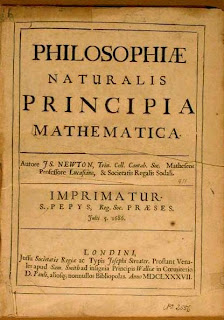
The concept of time travel throws up some real conundrums. You know the sort of thing: you could go back in time with a few crates of modern weaponry, give them to King Harold, train his men in their use, and then machine gun all those Normans as they waded ashore. Result: Battle of Hastings a great English victory, no Norman Conquest, but maybe some old wives tales circulating about some devilish new weaponry.
So time travel would seem impossible: it would allow you to change history, which is impossible, unless you get into the idea or multiple parallel universes, one for each possible outcome, like Universe A, in which the Normans won, Universe B in which they lost etc.
In other words, there would be a near-infinite number of universes to cover all permutations of possible outcomes. I don't know about you, but my head begins spinning at the mere mention of parallel universes , so let's leave it at that, shall we ?
But I thought the other day of a rather more subtle scenario in which history is NOT changed, at least from a modern perspective, but one is still left with what seems an impossible situation.
Suppose you go into a shop on Charing Cross Rd that sells rare books, and ask for a copy of Newton's Principia. Suppose you then step into your time machine, and whizz back to 1665 or thereabouts when Newton was still an undergraduate at Trinity College Cambridge. You seek him out, and say, "Excuse me, Mr.Newton, might we just have a quiet word in private ?"
You explain to him that you are a time traveller, and are bringing back a summary of his life work that is due to appear in 1686 (see graphic). You say that you will make a present of it to him, provided he buys you a drink at the bar.
Over that pint of grog, you point out that by giving him Principia years before he wrote it, you will be saving him a great deal of research and mental effort.
Newton accepts the book gratefully, releases its contents in dribs and drabs, gets recognized, made a fellow of the Royal Society and Lucasian Professor at Cambridge, and, 20 or so years later, submits Principia for publication. Newton is properly hailed as a genius of the first order, and is regarded by many, myself included, as the greatest scientist who ever lived.
The question then is: if , thanks to time-travel, Newton didn't have to do the work to make the discoveries, who did ?







